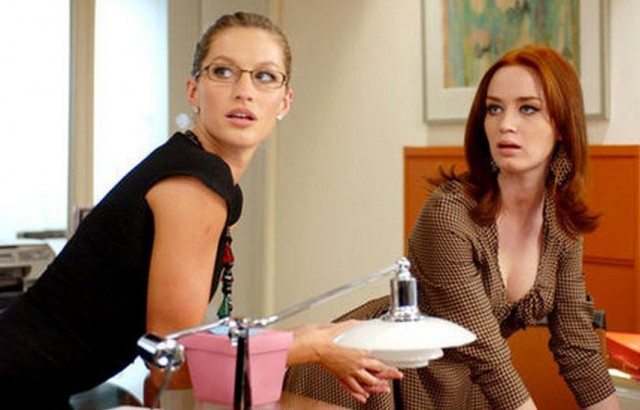Keep Your Eyes on Your Own Paper
by Megan Reynolds

I have never been good at not comparing myself to others. It is one of my favorite activities — something I do in between work emails and the lull between episodes of Parenthood loading on Netflix. A simple glance at Twitter or a mindless scroll through Facebook reveals the various successes, personal and professional, of friends, people from high school, old roommates. They are all seemingly doing things. Big things. And here I sit, on my couch, doing smaller things, like watching TV, working and conducting consumer research on duvet covers or televisions. My mind starts to wander. “I should be doing better,” a voice says, insistent and grating. “I should be doing more.” This voice is the worst. It is career suicide. The correct response to this: “Keep your eyes on your own paper.”
Every December, various publications start pumping out their lists of superlatives, full of people who are my age or younger doing exceptional things. Things like writing books, being Malala, or giving moving speeches about ending world hunger on that one commercial I always see on Hulu. I feel happy for these people if I happen to know some of them. “That person deserves that thing,” I say. “They’re very good at what they do.” Sometimes, when it’s gray and dark by 3:30, and I’m hungry and haven’t gotten up from my desk in a while, I indulge the little troll within that traffics solely in that sharp, stabby jealousy reserved for the times when other people do things that I feel like I should have done by now. “I should be a bit more accomplished,” I say. “I’m not really doing anything of significance. I should’ve done better.”

School teaches you to strive, which is an excellent life skill. It fosters ambition and encourages the underachievers to lift themselves up, however they see fit. Teachers want their kids to do well because they see the potential in each and every one of their special snowflakes who are more interested in, say, reading books quietly in the corner of the room instead of learning long division. You are pitted against your peers because a healthy level of competition is essential. It embeds the desire to achieve. In high school, during the mad rush towards the glowing promise of admission to a college of your choosing, you keep an eye on what your peers are doing because your guidance counselor tells you that getting admitted to a good college is the apex of success.
College is a magic world where you just float by on the ether of your budding intellect, thinking to yourself that all the stuff you’re learning about semiotics and post-colonial literature will matter when you’re released into the workforce. Then, you get a job doing something, and then another job doing something similar, and so on. If you like what you’re doing and find yourself reasonably talented at it, then that old high school compare and contrast engine kicks in. You strive, you throw elbows, you achieve. Success.
I changed careers from something I hated to something I don’t dislike as much. Everyone I work with now is at least five years younger than I am and have the kind of clear-eyed vision of what they wanted to be when they grew up that I lacked. They did the right things that led them to a job that they like and are good at and are successful in. They are doing more than I was at their age, even though it wasn’t that long ago. Being slightly older in a room full of fresh-faced kids who I could have babysat in high school is sobering. When you’re sitting across a table getting feedback from a project manager who is seven years younger than you you start to question precisely where things went wrong.
I’m not even sure how to define success. It’s personal. It’s measured by how you feel and not by what anyone else is doing, because the fact of the matter is, no one else is paying attention. Everyone else is worried about their own work, their own dramas and don’t really care what you have or haven’t done. The feedback loop created by constantly drawing comparisons between yourself and others is an entirely pointless exercise.
Living your life stuck in the morass of whether or not you’ve achieved enough is counterintuitive to the only thing that powers actual success, which is forward motion. It’s tripping over an empty pizza box and losing a shoe on the sidewalk instead of walking with purpose towards the next opportunity. Comparing yourself to others is pointless because those other people aren’t you. They don’t inhabit your skin every day, and they didn’t have the experience that you had to get you to wherever you are. If you wake up in the morning and feel like you’re doing a good job at the job you’ve been assigned to do, that’s success. If you go to work, do some work, and then leave work at a reasonable hour, with enough time to go to the grocery store or the gym after work, that’s success. If you feel proud of what you do half the time and are fine enough with it the rest, that’s success.
Megan Reynolds lives in New York.
Support The Billfold
The Billfold continues to exist thanks to support from our readers. Help us continue to do our work by making a monthly pledge on Patreon or a one-time-only contribution through PayPal.
Comments